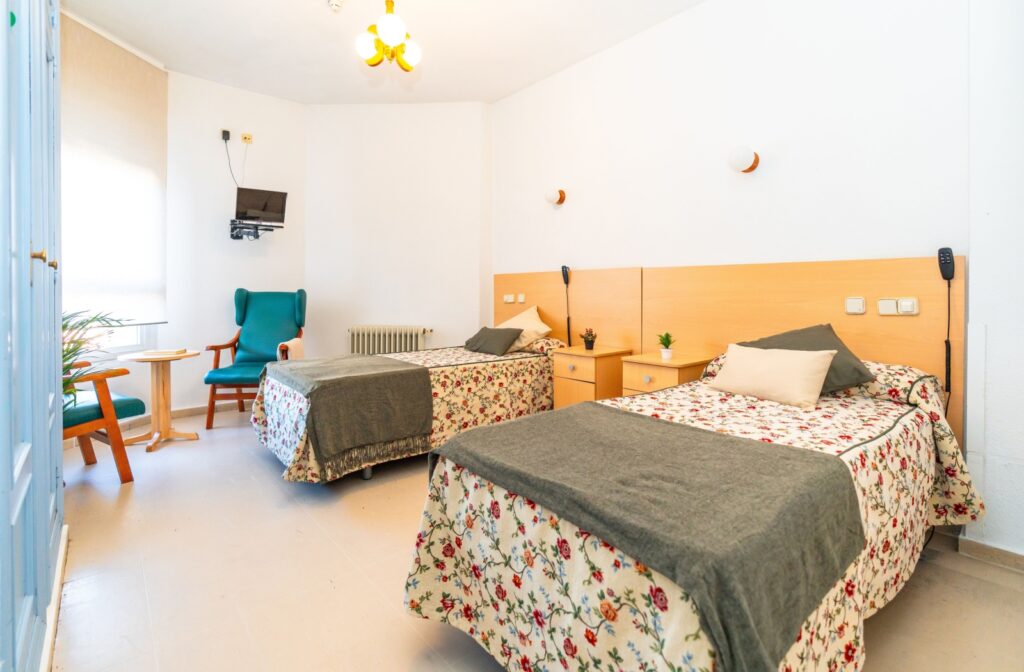Transitioning a loved one into memory care is one of the most important—and often emotional—decisions a family can make. At Boden Maplewood, we understand the weight of this moment. Our mission is to create a compassionate, supportive, and secure environment where your loved one can thrive, even while facing the challenges of dementia or Alzheimer’s disease.
For many families, the decision to explore a companion suite begins with affordability. But what they often discover is that the emotional and social benefits of a shared living arrangement go far beyond the financial. In fact, for residents living with cognitive decline, shared suites can significantly improve quality of life, reduce loneliness, and encourage a renewed sense of connection and purpose.
More Than Cost Savings: The True Value of Shared Living
Companion suites are thoughtfully designed to meet the unique needs of individuals living with dementia. While cost-effective care is certainly a factor for families, shared living also delivers emotional, cognitive, and psychological benefits that can truly make a difference in daily life. A shared suite is more than a room—it’s an opportunity for relationship, routine, and connection.
Here’s how a companion suite can enrich your loved one’s memory care experience.
1. Easing the Transition into Memory Care
Moving into a new environment—especially for those with memory loss—can feel overwhelming and disorienting. A companion suite offers something incredibly valuable from day one: built-in support.
Having a compatible roommate can help ease the anxiety and confusion that often comes with a major life change. A shared experience fosters emotional security, encourages acceptance of the new environment, and may even accelerate the adjustment period.
This is particularly important during the first few weeks after the move. Residents who share a suite often report feeling more settled and comforted than those in private rooms.
2. Built-In Social Interaction
Loneliness is a major concern for older adults—especially those with Alzheimer’s or other forms of dementia. Cognitive decline can make it harder to maintain relationships, engage in conversations, or participate in activities, often leading to isolation.
Shared living spaces, however, create natural opportunities for social connection throughout the day. From chatting during morning routines to participating in group activities together, roommate interactions promote regular engagement and companionship.
Numerous studies link social interaction with improved mood and slower cognitive decline. Our companion suites are designed to foster this kind of daily, low-pressure connection.
3. A Renewed Sense of Purpose
Even simple, day-to-day interactions between roommates—helping one another, reminiscing, sharing meals—can give residents a sense of responsibility and meaning.
This mutual companionship has been shown to improve emotional well-being, increase self-esteem, and provide a stronger sense of identity. Many families tell us they’ve seen their loved one “light up” when given the opportunity to bond with someone who understands what they’re going through.
Connection builds confidence, and confidence contributes to quality of life.
4. Reducing Behavioral and Emotional Challenges
Dementia can lead to behavioral symptoms such as agitation, restlessness, fear, or even aggression. These are often a result of confusion, frustration, or feeling misunderstood.
Having a consistent, familiar roommate offers stability. That daily presence becomes part of a resident’s routine, which can help reduce anxiety and ease transitions between daily activities. Our trained staff also provides emotional support, redirecting behavioral responses with calmness and compassion.
Research suggests that regular social interaction may help decrease the frequency and severity of these behavioral challenges.
5. Thoughtful and Personalized Pairing
At Boden Maplewood, we know that the success of a shared suite depends on compatibility. That’s why we take great care in pairing residents based on personality traits, interests, communication styles, and care needs.
We work closely with families to ensure the right fit and remain flexible if adjustments are needed. Our goal is to create a harmonious living environment where both residents feel respected, comfortable, and understood.
6. Comprehensive Care, More Affordable
Companion suites allow your loved one to receive the full benefits of our specialized care at a more affordable rate. This includes:
- 24/7 on-site memory care staff
- Personalized care plans and medication management
- Safe, accessible living spaces designed for those with cognitive decline
- Daily engagement through
- Beautiful, comfortable surroundings
In a companion suite, residents don’t sacrifice quality of care—instead, they gain a holistic, relationship-focused experience that supports their mind, body, and spirit.
Creating a Community of Care at Boden Maplewood

Companion suites at Boden Maplewood aren’t just a practical solution—they’re a meaningful one. They offer comfort, emotional security, and the joy of shared experiences for residents living with dementia.
Our team is committed to creating an environment that feels like home, where every resident is treated with dignity and compassion. For many, shared living becomes an unexpected gift: a way to feel seen, supported, and part of a vibrant memory care community.
Schedule a Visit to Learn More
If you’re exploring options for memory care, we invite you to tour Boden Maplewood and discover the unique benefits of our companion suites. We’re here to answer your questions and support your family every step of the way.




